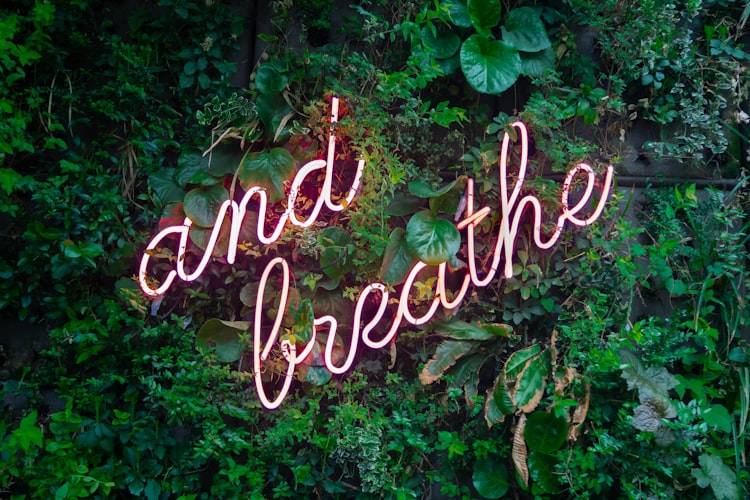How to Develop Self-Reliance

While the idea of becoming more self-reliant isn’t as mainstream as it once was, I believe that learning how to develop self-reliance in your own life continues to be one of the keys to getting ahead in life.
I’ve been interested in the topic of self-reliance for well over a decade. The feeling of being able to do something for or by yourself that you previously couldn’t do simply cannot be overstated.
But what is self-reliance, and how can we develop and build upon it in our own lives?
What is Self-Reliance?
Self-reliance is trusting your abilities to get through the challenges of life on the back of your own resourcefulness. It refers to your ability to provide for yourself (and oftentimes, defend against your enemies) without the need for outside help.
Of course, this self-reliance definition is broad, with the meaning varying from person to person. While the above definition of self-reliance refers to it as a form of individualism, in reality the term has vast meaning, and the importance of self-reliance will vary dramatically from one person to the next.
Self-Reliance Examples
Self-reliance means different things to different people. The character traits most readily associated with self-reliance are, in no order:
- Reliability: You can be depended on to be consistent in everything you do.
- Perseverance: You keep going, weathering the storm through thick and thin.
- Dependability: You can be trusted to do what you say you’re going to do.
- Hardworking: You believe in the value of hard work and dedication.
- Self-discipline: You control your behaviors in order to improve your actions.
Being self-reliant allows you to survive the harshest of winters and the most brutal of summers. It gives you a sense of agency over yourself and your decisions. And while it isn’t an excuse to never seek help from others, it means you are no longer at the mercy of those who may have other plans for you.
In practice, self-reliance can look like any number of things. Being able to depend on yourself to meet your basic needs (and the needs of your spouse, children, and other family members, if this falls on you) is one of the greatest feelings in the world.
Here are some self-reliance examples in practice:
- Learning to tie your shoelaces: You don’t think twice about it now, but when you learned to tie your own shoelaces you opened up a whole world of possibilities (including, but not limited to, wearing better shoes).
- Getting a driver’s license: The day you passed (or will pass) your driver’s test was likely a day for celebration, and rightly so! Getting a license is one of the most clearcut examples of self-reliance in the modern world, as the possibilities it allows for are endless.
- Choosing to live within your means: I’ll touch upon the role of living within your means as a form of a self-reliant lifestyle in more detail below, but needless to say, if you are in debt it’s difficult to become self-reliant.
- Learning how to make a fire without matches or a lighter: Moving into more primal examples, learning how to make a fire without matches or a lighter is essential if you’re ever in a position where you need to survive in the wilderness for any length of time.
- Getting comfortable sleeping outside: While sleeping under the stars requires planning and preparation, it isn’t nearly as difficult as it is sometimes made out to be, so long as you have enough warm clothing and you’re aware of any potential predators.
- Learning how to build a simple shelter: Of course, sleeping outside isn’t for everyone, and if you know how to build a simple shelter out of the materials available to you, this is often preferable, especially if you’re intending on staying in one location for more than one night.
- Growing, hunting, and catching your food: Learning how to grow, hunt, and fish your own food are three core skills of self-reliance. These essential skills have fallen away over the generations, but they are as core to our being in the modern world as ever.
Self-Reliance in Popular Culture
The principles of self-reliance often come up in popular culture. While I may be using the term ‘popular culture’ loosely with at least one of the below examples (I’m looking at you, Epictetus), here is a look at how the examples of self-reliance have translated through the years:
The Enchiridion by Epictetus
Epictetus (55-135 AD) was born a slave in Hierapolis, Phrygia (present day Pamukkale, Turkey). Known today as one of the foremost Stoic philosophers alongside the likes of Marcus Aurelius and Seneca the Younger, Epictetus’s thinking would have been lost if not for his pupil, Arrian, who wrote down his lectures and published them as the Enchiridion and Discourses.
Epictetus first learned of philosophy after he was given permission by his owner to pursue liberal studies. Gaining his freedom after the death of emperor Nero, Epictetus went on to teach philosophy in Rome for almost 25 years, eventually leaving the city after emperor Domitian banished all philosophers from its walls. Arriving in Nicopolis, Greece, Epictetus went on to found a school of philosophy, from which he taught until his death.
While Epictetus doesn’t speak outright of self-reliance in his teachings, he does circle around the subject often as he speaks of the need for a man to stick to his principles and not be swayed by the whims of yourself or others. In one famous quip, Epictetus notes:
Don’t demand that things happen as you wish, but wish that they happen as they do happen, and you will go on well.
Similarly, on only concerning ourselves with what we truly need, Epictetus noted:
Men are disturbed, not by things, but by the principles and notions which they form concerning things.
There are times in Epictetus’s work where it is clear that he is disappointed with himself or someone else in his life, potentially a student. Lashing out as only Epictetus could, he unleashes his feelings about the lacking self-reliance:
You are no longer a boy, but a grown man. If, therefore, you will be negligent and slothful, and always add procrastination to procrastination, purpose to purpose, and fix day after day in which you will attend to yourself, you will insensibly continue without proficiency, and, living and dying, persevere in being one of the vulgar.
Self-Reliance and Other Essays by Ralph Waldo Emerson
Published in 1841, Self-Reliance and Other Essays by Ralph Waldo Emerson is a collection of six essays (History, Friendship, The Over-Soul, The Poet, Experience, and, of course, Self-Reliance) alongside Emerson’s Harvard Divinity School Address.
In the title essay, Emerson (1803-1882) speaks of the need to avoid consistency and conformity at any cost. In Emerson’s view, a man must follow his own path, wherever that may lead. The most famous line from the essay, “A foolish consistency is the hobgoblin of little minds, adored by little statesmen and philosophers and divines,” is perhaps its most powerful for this very reason.
In Self-Reliance, Emerson rails against the trusting of one’s assets (and with this, one’s fortune) to anyone but yourself, noting:
The reliance on Property, including the reliance on governments which protect it, is the want of self-reliance. Men have looked away from themselves and at things so long, that they have come to esteem the religious, learned, and civil institutions as guards of property, and they deprecate assaults on these, because they feel them to be assaults on property. They measure their esteem of each other by what each has, and not by what each is.
Emerson continues in the next breath:
A cultivated man becomes ashamed of his property, out of new respect for his nature. Especially he hates what he has, if he see that it is accidental, came to him by inheritance, or gift, or crime; then he feels that it is not having; it does not belong to him, has no root in him, and merely lies there, because no revolution or no robber takes it away.
While the ideals that Emerson brings forth throughout his essay are, for the most part, to be aspired to, the ways in which he espouses on them are, in my opinion, at times a little over the top. Consider this passage from Self-Reliance in which he refers to the “joint-stock company” that is society:
These are the voices which we hear in solitude, but they grow faint and inaudible as we enter into the world. Society everywhere is in conspiracy against the manhood of every one of its members. Society is a joint-stock company, in which the members agree, for the better securing of his bread to each shareholder, to surrender the liberty and culture of the eater. The virtue in most request is conformity. Self-reliance is its aversion. It loves not realities and creators, but names and customs.
This aside, it is no secret why Self-Reliance has enjoyed the popularity it has gained since its publication almost 180 years ago. Emerson offers the modern reader a glimpse into his own soul, and that, for any young man or woman looking to build self-reliance, is an offer too tempting to refuse.
My Self Reliance by Shawn James
Shawn James, a Canadian outdoorsman, photographer, and self-reliance educator, uploaded his first video to the My Self Reliance YouTube channel in May 2015. Since then he’s racked up over 450 videos across his two channels (Shawn James being his second), and amassed a base of over one million loyal subscribers—including myself.
Describing himself as “a passionate outdoorsman living the life of my dreams in a log cabin that I built by myself in the Canadian wilderness,” James’ videos primarily focus on him working on building up his homestead to make it livable for him and his family.
While I’m going to struggle to make this section unbiased (I love James’ videos—watching them for the past eighteen months served as my inspiration to write this post), it’s James’ view on modern day self-reliance that I find most interesting. While the ability to build a shelter, grow, hunt, and fish his own food, and generally live off the land around his homestead are all as important to him as you would expect, in one of his videos James states the following:
The number one core principle of self-reliance is to live within your means. There are two ways to live within your means, one is to increase your income, and the second is to reduce your expenses so whatever income you make exceeds what you spend.
Later in the video James continues on the same theme, noting that self-reliance in the twenty-first century doesn’t mean trying to do everything by yourself:
Survival skills like lighting a fire and building a shelter come secondary to getting control of your expenses and spending habits and making yourself more valuable so you can earn enough income to cover for your expenses no matter what they are.
In fact, while the content of the majority of James’ videos focuses on the work he is putting in at his homestead (he’s currently finishing off a porch on his cabin, and putting the finishing touches to a bathhouse-come-sauna), while going through his videos for this article I noticed that time and again James keeps coming back to the importance of frugality, and how if you don’t live within your means you will never be truly self-reliant:
One of the biggest mistakes we make when we’re young, [in fact] most people struggle with it, including myself, is learning not to spend money casually. We’ve got a few extra bucks in our pocket, we go out and we buy something a little bit more expensive or buy something we don’t really need, or eat out more often, or do just foolish things with our money that we don’t really think of as foolish or that they’re big enough to have an impact on our lives. But over time those things add up, and every penny that you spend is something you never get back, and you have to work that much harder for. So, if you’re looking to become more self reliant [...] you need to get control of your spending habits, reduce your expenses, and learn how to make money more efficiently so the net of these two things give you the life that you want.
When you learn to develop self-reliance in the modern world you put yourself that much closer to becoming a more resourceful individual, while gaining a true sense of agency over yourself and your decisions.
If you’re interested in hearing more from me, be sure to subscribe to my free email newsletter, and if you enjoyed this article, please share it on social media, link to it from your website, or bookmark it so you can come back to it often. ∎


